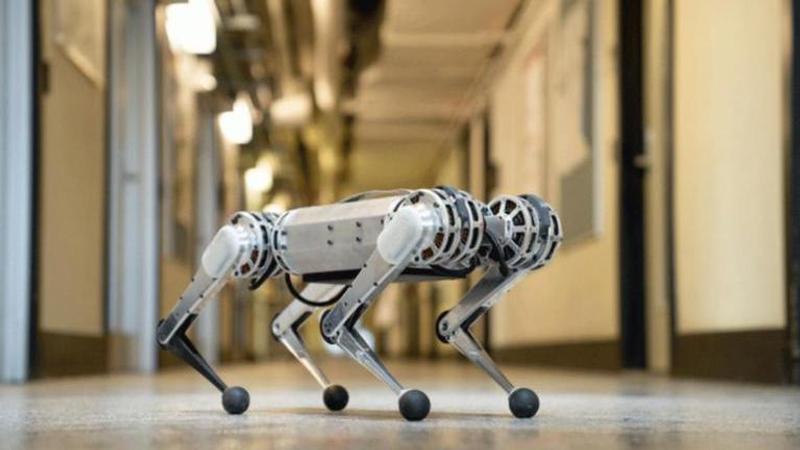Published 15:32 IST, April 8th 2021
Robotic guide dogs could help visually impaired people navigate the world; here's how
The autonomous AI robotic Guide dogs could safely commute its handler through cluttered, narrow paths and obstacles just like a real canine,

Researchers at University of California, Berkeley have developed a four-legged robotic dog known as ‘mini cheetah’ fitted with a laser mapping system, cameras, and sensors to safely guide the visually impaired on the streets. The autonomous AI robot dog could safely commute its handler through cluttered, narrow paths and obstacles just like a real canine, which needs training investments. Scientists in the US introduced the quadrupedal robot dog with a leash to enable the robot-guiding human system to change its intrinsic dimension (by letting the leash go slack) in order to fit into narrow spaces. A prototype successfully guided a blindfolded person in a confined space without hassle.
“Guide dogs play a critical role in our society by helping the frail, elderly, or visually impaired people navigate the world. However, a well-behaved guide dog usually needs to be selected and trained individuals,” researchers explained.
Therefore, with progress in robotics, scientists came up with the idea of designing a robot dog that could guide blind humans with a leash that can be used as a taut to guide the motion of the handler. The technology uses a hybrid human-robot interactive framework, wherein a blind person will be guided by the robot and move in the direction of the force applied by the leash when the leash is taut. Moreover, when the leash is slack, the human will not feel any force in the leash and thus will not move.
[Image Credit: arXiv preprint server]
[Image Credit: arXiv preprint server]
The robot dog mini cheetah could navigate visually impaired humans through a narrow doorway by means of a leash that will operate as a taut and will help them take turns through a laser-ranging system installed in the robot canine. The robot dog will also track the movements of its handler via sensors. The AI dog also maps out the simplest route for the human it is guiding and reduces the time of travel and scans the path with the least obstacles. In the study uploaded to the arXiv preprint server scientists tested the Boston Dynamics robot dog with at least three blindfolded persons. In all three instances, the mini cheetah dog was able to map challenging terrains and moved the blind persons exerting force on the leash in the real-world environment.
NYPD's patrol 'Digidog'
Earlier, the New York Police Department deployed blue coloured robot dog with cameras, lights, and walkie-talkies sprinting around the town to replace the job of police K-9. New York Police Department (NYPD)’s Digidog, the 70 pound Boston Dynamics machine was deployed by the officers to diffuse the ‘home invasion’ instances. Running on a trial basis, the digital police dog participated in 2 hostage situations [later confirmed to be a false alarm] and was named ‘Spot’ by the police officers. Spot attracted some weird reactions from the inhabitants of the city as well as politicians as it was spotted climbing the stairs in footages that emerged, reminding people of the dystopian science fiction movie Black Mirror.
(Image Credit: MIT)
Updated 15:32 IST, April 8th 2021





